Diet,Snacking and Dental Health
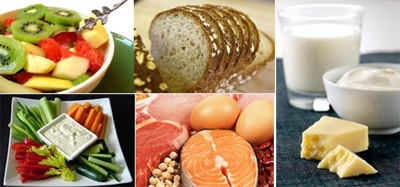
1. What is a healthy diet for my child?
A healthy diet is a balanced diet that naturally supplies all the nutrients your child needs to grow. A balanced diet is one that includes the following major food groups: Fruits Vegetables Grains Meat & Beans Milk These are the key groups according to the food pyramid.
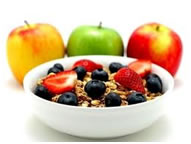 2. How does my children’s diet affect their dental health?
2. How does my children’s diet affect their dental health?
They must have a balanced diet for their teeth to develop properly. They also need a balanced diet for healthy gum tissue around the teeth. Equally important, a diet high in certain kinds of carbohydrates, such as sugar and starches, may place your child at extra risk for tooth decay.
3. How do I make my children’s diet safe for their teeth?
First, be sure they have a balanced diet. Then, check how frequently they eat foods with sugar or starch in them. Foods with starch include breads, crackers, pasta and snacks, such as 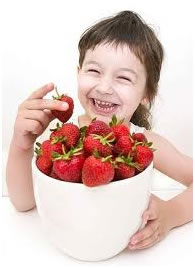 pretzels and potato chips. When checking for sugar, look beyond the sugar bowl and candy dish. A variety of foods contain one or more types of sugar, and all types of sugars can promote dental decay. Fruits, a few vegetables, and most milk products have at least one type of sugar.
pretzels and potato chips. When checking for sugar, look beyond the sugar bowl and candy dish. A variety of foods contain one or more types of sugar, and all types of sugars can promote dental decay. Fruits, a few vegetables, and most milk products have at least one type of sugar.
Sugar can be found in many processed foods, even some that do not taste sweet. For example, a peanut butter and jelly sandwich not only has sugar in the jelly, but may have sugar added to the peanut butter. Sugar is also added to such condiments as catchup and salad dressings. Some snacks can be purchased at school, for example, from vending machines; these offerings usually contain little nutritional value and are highly cariogenic.
4. Should my child give up all foods with sugar or starch?
Certainly not! Many provide nutrients your child needs. You simply need to select and serve them wisely. A food with sugar or starch is safer for teeth if it is eaten with a meal, not as a snack. Sticky foods, such as dried fruit or toffee, are not easily washed away from the teeth by saliva, water or milk. Therefore, they have more cavity-causing potential than foods more rapidly cleared from the teeth. Talk to your pediatric dentist about selecting and serving foods that protect your child’s dental health.
5. My youngest isn't on solid foods yet. Do you have suggestions for him?
Do not nurse a young child to sleep or put him to bed with a bottle of milk, formula, juice or sweetened liquid. While a child sleeps, any unswallowed liquid in the mouth feeds bacteria that produce acids and attack the teeth. Protect your child from severe tooth decay by putting him to bed with nothing more than a pacifier or bottle of water.
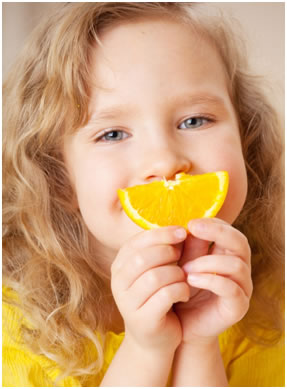
6. Any final advice?
Yes. Here are tips for your child's diet and dental health.
- Ask your pediatric dentist to help you assess your child's diet.
- Shop smart! Do not routinely stock your pantry with sugary or starchy snacks. Buy "fun foods" just for special times.
- Limit the number of snack times; choose nutritious snacks.
- Provide a balanced diet, and save foods with sugar or starch for mealtimes.
- Don't put your young child to bed with a bottle of milk, formula, or juice.
- If your child chews gum or sips soda, choose those without sugar.
- Make him to brush his teeth after meals and snacking.
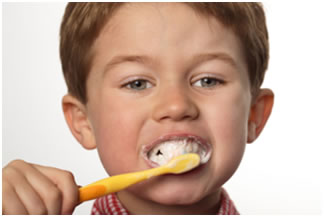
Sources
Romito L, Feigal RJ, McDonald Jr. JL. Nutritional considerations for the pediatric dental patient. In: Dean JA, Avery DR, McDonald RE. Dentistry for the child and adolescent. St. Louis, Mosby Elsevier, 9th ed., 2011, p:223-240.
http://www.aapd.org/publications/brochures/snacking.asp





